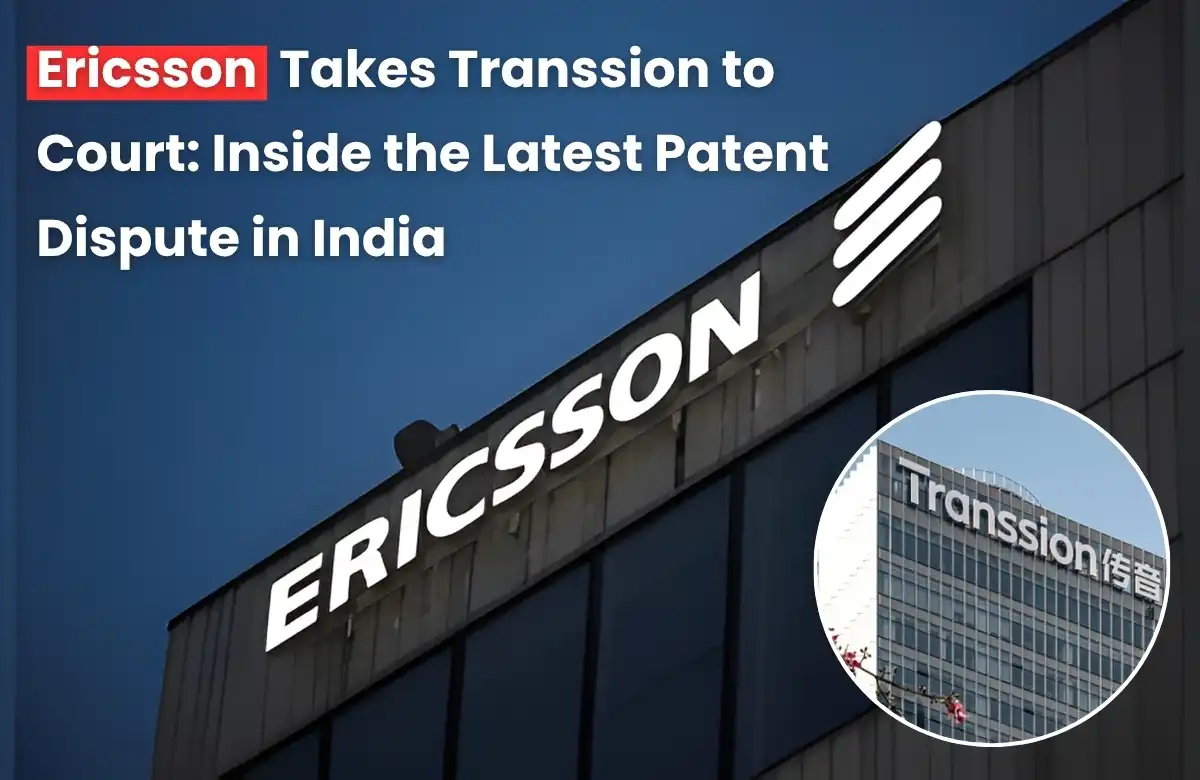
A major patent fight is making headlines worldwide, and this time it’s Ericsson taking on Transsion—the Chinese company behind Tecno, Infinix, and itel phones. Ericsson claims that Transsion has been using its 3G/4G/5G technology without the proper patent licensing, and this clash isn’t new at all. In fact, the Ericsson vs Transsion Patent Infringement Case has been brewing for almost a decade. So what’s really going on, and why did it finally explode into a global legal battle? Keep reading to break down the case and catch up on the latest IP news from India and around the world.
What’s the Real Background Behind The Ericsson vs Transsion Patent Infringement Case Worldwide?
Before we get into how this case blew up to the point where Ericsson is suing Transsion across multiple countries, it’s important to know that this fight didn’t start yesterday—it actually goes back almost ten years. Ericsson, the Swedish tech giant known for building the backbone of mobile networks from 2G all the way to 5G, has one of the biggest telecom patent portfolios in the world. On the other side is Transsion, a Chinese smartphone maker that dominates emerging markets with its popular brands like TECNO, Infinix, and itel, along with accessory brand Oraimo and service network Carlcare. According to Ericsson, it has been trying for years to get Transsion to sign a global licence for using its patented 3G/4G/5G technology, but the talks kept stalling. Meanwhile, Transsion’s phones were spreading fast across Africa, India, and other regions. Ericsson claims that despite all the negotiations, Transsion kept selling devices powered by its technology without paying for the licence. After nearly a decade of back-and-forth, things finally came to a head in 2025, pushing Ericsson to file patent infringement lawsuits around the world to enforce its patent rights. In the lawsuit, they have demanded certain things from the court:
- Ericsson wants Transsion to sign a global licence for using its 3G, 4G, and 5G patents, along with paying royalties for past unlicensed use.
- The company also seeks official confirmation from the courts that Transsion infringed its patents, and in some regions, it may even push for sales restrictions on certain devices until a licence is secured.
- Since these are standard-essential patents, Ericsson says it has offered Transsion fair FRAND terms for years, but the talks never moved forward—leading the company to finally enforce its rights through worldwide lawsuits.
Read Also: Calcutta High Court Invalidates JAYS Trademark After Trademark Dispute with PepsiCo
Why Does the Ericsson–Transsion Case Matter for the Global Smartphone Market?
This Ericsson vs Transsion Patent Infringement Case matters because it’s not just a fight between two tech companies—it could shake up the smartphone world and also the intellectual property rights (IPR). Transsion is one of the fastest-growing phone brands globally, especially in places like Africa and India, so any legal trouble could affect millions of users. And Ericsson isn’t new to these kinds of battles either; it has gone head-to-head with big names like Samsung, Apple, and Xiaomi before. Now that Ericsson has taken the fight to courts in India, Africa, the EU, and Brazil, the outcome could change how phone makers negotiate licences, and possibly even impact the prices and availability of budget and mid-range phones in key markets.
Conclusion
The Ericsson vs Transsion Patent Infringement Case is more than a patent dispute—it’s a reminder of how complex and high-stakes the smartphone industry has become. With lawsuits now unfolding across multiple countries, all eyes are on how both companies choose to move forward. Whether this ends in a global settlement or a long legal battle, the outcome will shape how future of patent licensing deals are made and could even influence what consumers pay for their next phone.
Read Also: Masimo Wins $634 Million Lawsuit Against Apple Over Pulse Oximeter Patent
FAQs (Frequently Asked Questions)
Q. What Service does Ericsson provide?
- Ericsson provides telecommunications and IT Services and wide range of professional services.
Q. Why Ericsson Sue Transsion?
- Ericsson Sues Transsion for using 3G/4G/5G patented technologies without Permission.
